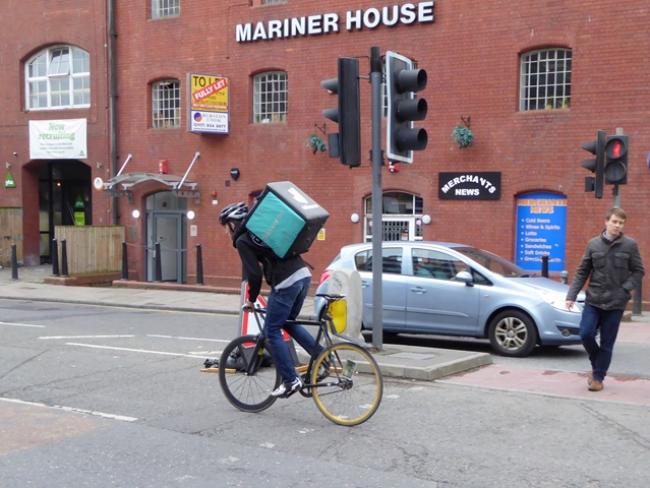10 July 2017

Deliveroo rider, Narrow Quay, Bristol. Photo Oliver Dixon (CC-BY-SA 2.0), geograph.org.uk/p/5314307
Even as the Taylor review called on Monday (10 July) for some kind of controls on casualisation with its idea of “dependent contractor” status, companies and organisations such as Deliveroo, the CBI and other proponents of the “Uber” and “gig” economy are mounting further ideological challenges define what a worker is by their own criteria.
All these challenges are anchored around keywords like “flexibility”, “independence”, “freedom” and “choice” – ideas that supposedly benefit of the worker, or the self-employed, or the false employed or employee, or insecure worker…or whatever other clever definition employment law has invented or has hidden behind over the last 30 years.
Definition
Deliveroo and its friends now want a new legal definition to categorise the multi-employed self-contracting individual whom the controllers of the technology control, but do not wish to have any contractual responsibility for. But the crux of the relationship remains as simple as ever: there are those who work and those who exploit them.
That Deliveroo has gone from one delivery person to 15,000 in under four years, utilising technology which did not exist five years ago should fool nobody. Capitalism has just found a new way to tap the food delivery market, that is all.
The CBI regards the flexible labour market as “the invaluable strength that underpinned Britain’s record employment rate and boosted business competitiveness” – words which translate into physically exhausted workers often earning less than the minimum wage, working ever longer hours without any workplace employment rights.
The rhetoric of the employers is no more than the language of exploiters from the dawn of the British industrial revolution. And as always they will never concede defeat over hours, wages and profits unless we force them to.
